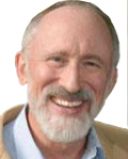Religion
Either/Or?
Sounds simple enough, but life is only rarely a matter of either/or
Posted April 16, 2014
The 19th century philosopher Søren Kierkegaard made a mantra out of “Either/Or.” Not only was it the title of his first book (in Danish, Enten ‒ Eller), the phrase also summarized much of his thinking, which in turn became a cornerstone of what is now known as existentialism. The basic idea - easily said, not so easily done - is that the most important issues in life require painful, honest choices, resulting in a stark contrast: "Either/Or," as opposed to wishy-washy, split-the-difference, a little-bit-of-this-and-a-pinch-of-that compromises. In short, you can’t have it both ways.
There is something bracing about Kierkegaard’s courageous insistence on dramatic, life-defining decisions. No one likes fence-sitters. Jean-Paul Sartre, the most renowned modern exponent of existentialism, famously wrote that people are “condemned to be free,” required to make deeply personal choices whereby we define ourselves. Moreover, declining to choose is itself a wimpy excuse for a choice, motivated by cowardly “bad faith.” When it comes to religion, the choice seems especially stark: either accept the precepts, whatever they may demand, and embrace the faith (whatever it might be), or deny them and it, and be an nonbeliever – i.e., an atheist like me. But are we really stuck with Either/Or?
No less a scientist than Thomas Huxley, known as “Darwin’s bulldog” for his ferocious defense of evolutionary theory, invented the term “agnostic” to describe those like himself who deny the either/or of believer/atheist and embrace a kind of radical uncertainty: that we do not and probably never will know for sure whether any religion is valid or whether God exists. Kierkegaard would not have approved, but many people evidently do. The late Stephen Jay Gould sought to carve out a similar kind of middle ground, this time between science and religion, based not on uncertainty but on different zones of concern and thus, different arenas of validity.
For Gould, science and religion were cases of Non-Overlapping Magisteria (“NOMA”), with the former describing and understanding the world as it is – the realm of physical events and their causation - and the latter, the world as it should be, the realm of ethics, morality and ultimate meaning. For devotees of NOMA, the twain don’t meet.
For me, they do, and the meeting is nearly always unsatisfactory. Thus, evolutionary biologists occasionally attempt to derive ethics from natural selection; such efforts – particularly their ill-conceived spawn, social Darwinism – have failed miserably, as well they should. Evolution by natural selection is a marvelous thing to learn about, but a terrible thing to learn from: living things and their constituent genes are selected (naturally), simply by virtue of their relative reproductive success, with no regard for anything even approximating what most people mean by ethics or morality. On the other hand, religions have been even more insistent on treading upon the “magisteria” of science, constantly making blatantly counter-factual claims about the material world: parting of waters, voices out of whirlwinds, virgin births, resurrection of the dead, absurd miracles and various bizarre assertions of the supernatural.
Out of this seeming incompatibility, I have been delighted to identify a “religion” that coexists comfortably with science; namely, Buddhism. I put religion in quotation marks here because as a religion, Buddhism is every bit as infected with hocus-pocus and abracadabra as are the Abrahamic Big Three: Judaism, Christianity and Islam. On the other hand, if we dissect out Buddhism’s religious silliness - the magic incantations, belief in an array of peculiar divine and half-human spirits, insistence upon rebirth, etc. - and retain its philosophical insights, we get a kind of “POMA,” or Productively Overlapping Magisteria. To my mind, no other “religion” offers anything as promising.
But even this promise comes with a caveat; namely the “Either/Or” buzz-saw. Thus, some readers have been outraged that my most recent book, in which I pointed out some of the convergences between Buddhist thought and biological science, I dared to tamper with Buddhism the way Thomas Jefferson did with the Bible: removing the superstitious religiosity while retaining the ethical and intellectual substance. “You can’t do that,” claimed these critics. “I could easily make Catholicism compatible with your beliefs,” sneered one, in response to a blog I wrote for Psychology Today, “if I simply eliminated 95% of Catholicism's core dogmas, and then pretended that God, soul and resurrection mean completely different things from what the Church has always maintained. But what would be the point? Either a religion's core teachings are truthful and valid or they aren't!” In short, Either/Or.
We’ve all experienced cases of Either/Or syndrome: George W. Bush announcing that “either you’re with us or you’re with the terrorists,” long-time Hollywood portrayals of cowboys versus indians, Christian and Islamic identification of the saved against the damned, angels or devils, black or white, rigid dichotomies of yes or no, true or false, divine or profane, with little or no tolerance of uncertainty, nuance or any shades of gray. Kierkegaard would doubtless understand, and approve. But I don’t. For me, at least – and for scientists generally – “truth” is rarely simple; rather, it requires numerous and consistent observations and confirmations, such that picking and choosing among alternative hypotheses and interpretations is not only permissible, but the only reasonable way to proceed.
And you? Well, maybe this is where the dour Dane gets the last word after all: Either you agree with me Or you don’t.
David P. Barash is an evolutionary biologist, long-time Buddhist and professor of psychology at the University of Washington, whose most recent book is Buddhist Biology: ancient Eastern wisdom meets modern Western science, just published by Oxford University Press.


